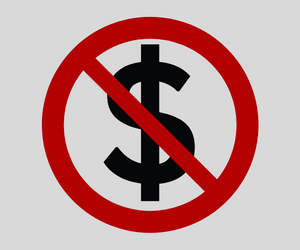Last week, the CEO of Black Rifle Coffee, Evan Hafer, gave a long-form interview to Jason Zengerle for the New York Times Magazine. I don’t know what he expected to achieve by the exercise, but I’m pretty certain that what he accomplished represented a significant deviation from the plan.
The piece framed Black Rifle Coffee as a “Starbucks for conservatives” and promoted the piece by saying that the company was trying to distance itself from some of its customers. Note that Black Rifle Coffee retweeted this tweet and that usually means that the tweet met with the approval of the person sending it:
Black Rifle Coffee, which offers an AK-47 Espresso blend, has explicitly presented itself as a troll-y, MAGA alternative to Starbucks. The company doubled its sales last year. It’s also trying to distance itself from some of its new customers. https://t.co/SX1RWupqsS
— The New York Times (@nytimes) July 14, 2021
Then the article proceeded with some newsworthy quotes by Hafer that Andy Ngo helpfully passed along.
“It’s such a repugnant group of people.”
The executives behind @blckriflecoffee, a coffee and lifestyle brand hugely popular with conservatives, has some choice words to describe part of its customer base. https://t.co/BxTpq0kfQY pic.twitter.com/mbdrBSpwGs
— Andy Ngô (@MrAndyNgo) July 16, 2021
The pushback from the right was pretty amazing; you can read my take on the brew-ha-ha, sorry, brouhaha here Is Black Rifle Coffee About to Throw Its Customer Base Under the Bus for Fun and Profit? Things got heated on Twitter, and some interesting people ended up blocked by Black Rifle Coffee’s social media flunkies.
Lmao what a bunch of soft wankers pic.twitter.com/6ykxieEpoT
— Raheem J. Kassam (@RaheemKassam) July 18, 2021
Here's something I never expected…
Amusingly, I was the guy telling my con friends, furious at #BlackRifleCoffee's perceived betrayal of its customers by dancing like organ grinder monkeys for the mainstream media, to give BRCC a chance to tell us its side.
I guess it has. pic.twitter.com/7dymLxELvi
— Kurt Schlichter (@KurtSchlichter) July 18, 2021
One of the more interesting revelations was that Hafer took his cues from the Pentagon’s “anti-extremist” bureaucracy.
Hafer and Best were talking in a glorified supply closet in the Salt Lake City offices, where potential designs for new coffee bags were hanging on the wall. One of them featured a Renaissance-style rendering of St. Michael the Archangel, a patron saint of military personnel, shooting a short-barreled rifle. In Afghanistan and Iraq, Hafer knew a number of squad mates who had a St. Michael tattoo; for a time, he wore into battle a St. Michael pendant that a Catholic friend gave him. But while the St. Michael design was being mocked up, Hafer said he learned from a friend at the Pentagon that an image of St. Michael trampling on Satan had been embraced by white supremacists because it was reminiscent of the murder of George Floyd. Now any plans for the coffee bag had been scrapped. “This won’t see the light of day,” Hafer said.
Think about that. An iconic Biblical figure, the angel who will lead the forces of Good to its final victory over Evil (see Revelation 12:7-9), is labeled an extremist symbol by some toad in the Pentagon, and the company immediately kowtows.
By yesterday, things were hot enough that Hafer felt like he had to issue a personal response.
View this post on Instagram
After his disastrous response to Kyle Rittenhouse wearing a Black Rifle Coffee t-shirt when he was released from jail, he probably should have sent out a substitute on this play because I’m not sure that his answer does him a lot of good.
A message from our CEO @EvanHafer. #brcc #americascoffee pic.twitter.com/QCAvGQezXo
— Black Rifle Coffee (@blckriflecoffee) November 22, 2020
These are the main points.
1. He didn’t make derogatory statements about his customers or conservatives.
2. The conversation he had with the New York Times Magazine reporter was in the context of racism and antisemitism in America in light of an organized attack on Hafer last year because of “my last name and my heritage.” From this, I’m assuming that Hafer is Jewish.
3. “We were purely discussing that.”
4. He never conflated “those groups with conservatives.”
5. He is a conservative.
6. He has no personal problem with St. Michael and carried a St. Michael’s medal while on active duty.
7. He does not know why Defense labeled the St. Michael image as extremist, and they are awaiting “clarification” from Defense.
8. He gave an interview to the New York Times because he has a “responsibility to give reporters an objective story about the company.”
9. He says he knew the “odds of the New York Times being objective were fairly slim but we gave them the opportunity.”
10. He says he tried to highlight the veterans’ programs that Black Rifle Coffee is involved with, but they “chose to write a salacious headline.”
11. “There is no chance in hell that I’m going to talk sh** about conservatives to the New York Times, it ain’t going to happen.”
12. It is more difficult than ever to “navigate the culture war.”
13. “We are about having a positive impact on our communities, not about who’s right and who’s wrong.”
Hafer seems to believe what he’s saying, and I don’t know the man, so I’ll take him at his word on his intent.
Having said that, here are some observations.
Re-reading the article with Hafer’s context, it is clear that Hafer did mention the attacks on him and tried to highlight his commitment to serving veterans. However, it is equally clear that Zengerle was not interested in that story.
There is zero linkage in the story between Hafer’s comments about “repugnant people” and the antisemitic attacks on him. Instead, the article reads, at least to me, as though he’s describing Kyle Rittenhouse’s supporters in that manner.
“You can’t let sections of your customers hijack your brand and say, ‘This is who you are,’” Best told me. “It’s like, no, no, we define that.” The Rittenhouse episode may have cost the company thousands of customers, but, Hafer believed, it also allowed Black Rifle to draw a line in the sand. “It’s such a repugnant group of people,” Hafer said. “It’s like the worst of American society, and I got to flush the toilet of some of those people that kind of hijacked portions of the brand.” Then again, what Hafer insisted was a “superclear delineation” was not too clear to everyone, as Munchel’s choice of headgear vividly demonstrated.
There is a vast disconnect between Hafer’s explanation of the Saint Michael incident and the article’s account. According to Hafer, they don’t know the reason that imagery of St. Michael casting Satan into Hell is forbidden, and the coffee bag design is on hold. However, according to the article, they know why, and the bag design is dead.
In my post, I reference Robert Conquest’s Second Law of Politics, to wit, “Any organization not explicitly right-wing sooner or later becomes left-wing.” Hafer claims to be conservative but, as best I could glean from his explanation, he doesn’t claim the company is conservative or supports conservative causes. In fact, he says he can’t be bothered to argue about what is right and what is wrong. There is a reason for that.
As Black Rifle Coffee blocks conservatives, it's important to understand that CEO @EvanHafer hired ActBlue Dem donors to run his IT and social media. pic.twitter.com/XfncLVYN1e
— John Cardillo (@johncardillo) July 19, 2021
If key senior staff are donors to ActBlue, your company is not a conservative enterprise.
Hafer is playing a dangerous game and not playing it all that well. His company is a lifestyle brand that will flop the moment the buzz and image about the company stop comporting with its actions. My personal view is that any conservative giving an interview to the New York Times or Washington Post deserves whatever happens to them. In this case, the variance between Hafer’s version of events and the article is serious enough that some sort of clarification needs to be issued in writing by someone. On the plus side, you can see the traces of Hafer’s version of events in the New York Times Magazine story, but they aren’t always easy to find. The question is, how much longer will Black Rifle Coffee’s customers continue to take Hafer at his word?















Join the conversation as a VIP Member